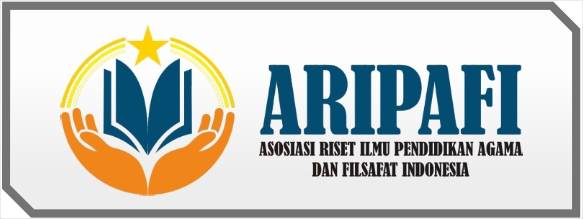Membangun Kehidupan yang Berkah, Tauhid sebagai Sumber Motivasi
DOI:
https://doi.org/10.61132/reflection.v2i2.646Keywords:
Blessed Life, Tawhid, Motivation, Education, Quality of LifeAbstract
Building a blessed life is a goal that is aspired by many individuals in society. In this context, tawhid as a single divine concept becomes an important source of motivation. This study aims to explore how understanding tawhid can influence individual attitudes and behaviors in building a blessed life. Through a qualitative approach, this study collected data from in-depth interviews with a number of respondents who have a strong understanding of tawhid. The methods used in this study are using a Qualitative approach, In-depth Interviews, Thematic Analysis, Research Results, Internalization of Tawhid, Positive Attitudes, Moral Behavior, and Social Contribution. The results of the study show that individuals who internalize the concept of tawhid tend to have a more positive perspective on life, and are able to overcome various challenges better. They feel inner peace and strong motivation to contribute to the surrounding environment. In the data analysis, it was found that tawhid not only functions as a spiritual belief, but also as a moral foundation that directs individuals to behave well. Respondents expressed that this belief motivated them to prioritize honesty, hard work, and helping each other in the community. This indicates that tawhid plays a significant role in shaping positive character and mindset. The conclusion of this study emphasizes the importance of integrating the values of monotheism in education and community development. By building awareness of the concept of monotheism, it is hoped that society can achieve a blessed, harmonious, and sustainable life. This study is expected to be a reference for stakeholders in creating programs that support the strengthening of spiritual values in society.
References
Andrean, S., Seka, & Niam, M. K. (2020). Peningkatan spiritualitas melalui media pembelajaran interaktif pada mata pelajaran akidah akhlak. Irfani, 16(1), 26–45. https://doi.org/10.30603/ir.v16i1.1295
Fikri, S., & Ismail, M. (2023). Integrasi akhlak dalam pendidikan karakter pada generasi muda. Jurnal Pendidikan dan Karakter, 9(2), 111–124.
Hasan, Z., Amin, R. F., & Fathorrosi. (2023). Implementasi etika bisnis Islam pada UMKM Sumber Barokah di Desa Buduan Kecamatan Suboh Kabupaten Situbondo. Jurnal Al-Idarah, 4(2), 1–13.
Hidayat, T., & Hamsah, M. (2019). Model pembelajaran akidah akhlak berbasis pendekatan kontekstual. Jurnal Pendidikan dan Pembelajaran Islam, 8(3), 144–157.
Mahrus, M., & Dewi, H. (2022). Peran pendidikan akidah dalam membentuk karakter siswa di era digital. Jurnal Pendidikan Islam dan Teknologi, 6(1), 55–68.
Muliyah, P., Aminatun, D., Nasution, S. S., Hastomo, T., Sitepu, S. S. W., & Tryana. (2020). 済無No title No title No title. Journal GEEJ, 7(2).
Noermansyah, R., Gemina, D., Silaningsih, E., Fakultas Ekonomi, & Bisnis, Universitas Djuanda Bogor. (2024). 1, 2, 3. Jurnal Ekonomi, 3, 6677–6691.
Nurdin, I. B. (2018). Faktor-faktor motivasi kerja pada karyawan Lembaga Huda Group di Kecamatan Tamansari Kabupaten Bogor. Islamic Management: Jurnal Manajemen Pendidikan Islam, 1(01), 70–97. https://doi.org/10.30868/im.v1i01.216
Rasyid, R., & Firdaus, M. (2020). Pendekatan konstruktivisme dalam pembelajaran akidah akhlak. Jurnal Ilmiah Pendidikan Islam, 12(4), 98–109.
Saleh, H. (2023). Landasan filosofis pendidikan Islam (Peran tauhid dalam konsep pendidikan Islam Ismail Raji Al-Faruqi). Fakta: Jurnal Pendidikan Agama Islam, 3(1), 29. https://doi.org/10.28944/fakta.v3i1.1243
Syukri, M. I. (2021). Implementasi nilai-nilai tauhid dalam pembelajaran akidah akhlak. Jurnal Pendidikan Agama Islam, 14(2), 135–147.
Tauhid, I. H., & Rozikin, M. (2019). Hubungan capacity building terhadap kinerja karyawan melalui motivasi. Jurnal Ilmiah Administrasi Publik (JIAP), 5(3), 365–375.
Tauhid, R. (2020). Dasar-dasar teori pembelajaran. PENDAS: Pendidikan Dasar, 1(2), 32–38.
Wahid, A., & Amin, M. S. (2021). Transformasi pendidikan akhlak dalam sistem pendidikan Islam. Jurnal Pendidikan Islam, 7(3), 205–220.
Zainuddin, M. R. (2016). Eksistensi tauhid dalam pemikiran pendidikan Islam. Journal of Islamic Education, 1(1), 16–35.













